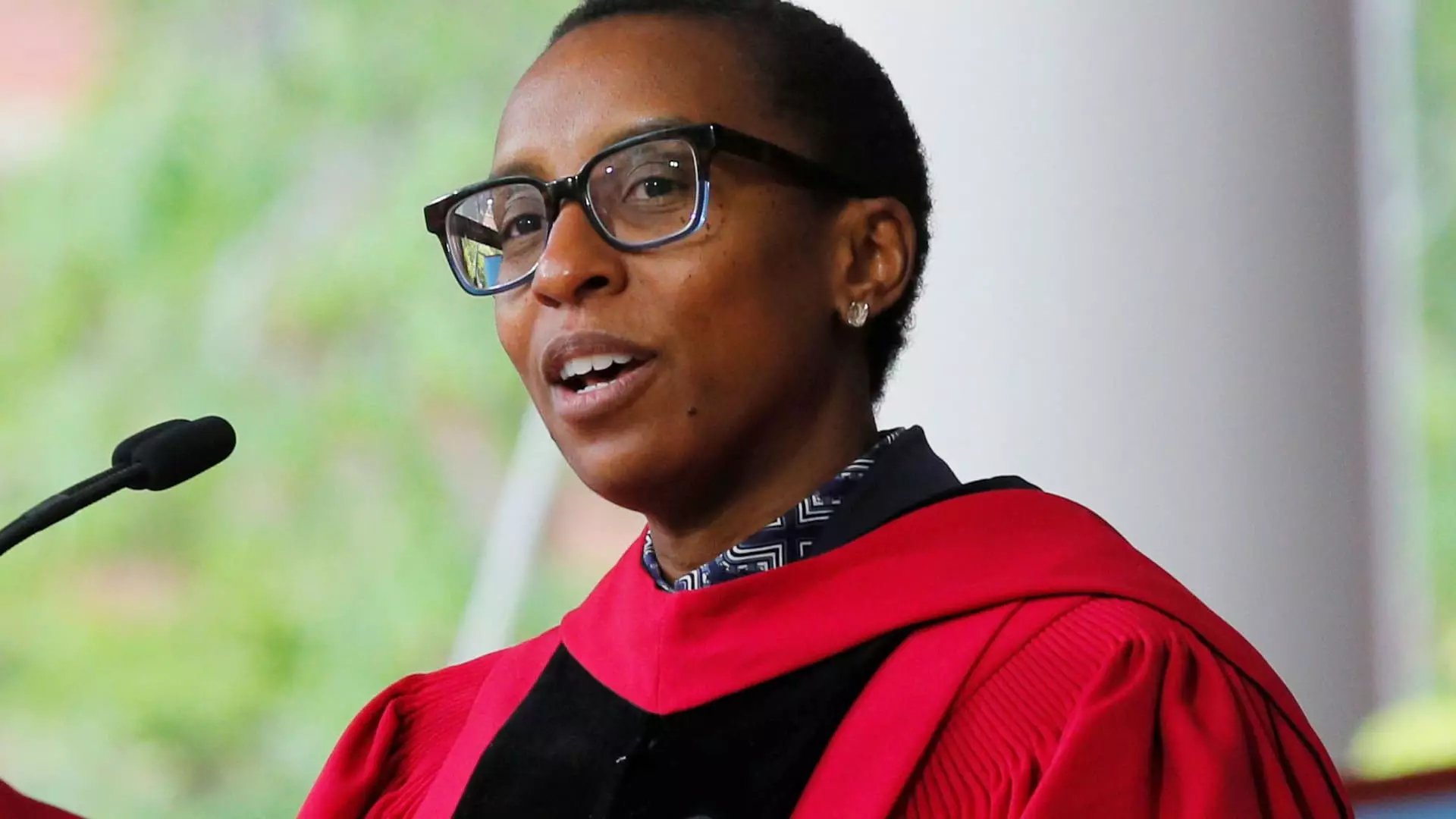Harvard University President Claudine Gay has announced her resignation in the wake of new allegations of plagiarism. Gay, who made history as the first Black person and the second woman to serve as Harvard’s president, held the position for just over six months, marking the shortest tenure in the university’s history. The controversy surrounding her congressional testimony about antisemitism on campus further fueled the decision. This article explores the circumstances surrounding Gay’s resignation and the implications for Harvard University.
On Monday, the Free Beacon news site reported that a new unsigned complaint had been filed against Gay, citing six additional allegations of plagiarism. This comes after the Harvard Corporation acknowledged instances where Gay had failed to adequately cite sources in her published academic work. Although she claimed to stand by the integrity of her scholarship, the mounting evidence proved to be detrimental to her position as president.
The allegations of plagiarism raise serious concerns about Gay’s academic integrity and the credibility of her work. As the leader of an esteemed institution like Harvard University, it is expected that the president upholds the highest standards of scholarship. The failure to properly attribute sources not only undermines her own reputation but also erodes the reputation of the university as a whole. The Harvard Corporation’s review of Gay’s academic work will inevitably cast doubt on the quality and originality of her contributions to academia.
Gay’s resignation is not solely based on plagiarism allegations. Her congressional testimony on antisemitism on university campuses drew criticism for her response to questions regarding codes of conduct. When asked if calling for the genocide of Jews would violate the school’s code of conduct, Gay and University of Pennsylvania President Liz Magill did not provide direct answers, citing the need to consider the context of the antisemitic statement. This evasive response sparked further outrage and ultimately led to Magill’s resignation.
Although the Harvard Corporation initially backed Gay following the controversy surrounding her testimony, the mounting allegations of plagiarism forced her resignation. The pressure from the public, including politicians like Rep. Elise Stefanik, and the broader academic community became insurmountable. Stefanik noted that Gay’s resignation was just the beginning and hinted at a potential scandal that could rock Harvard University. The subsequent resignation of Gay highlights the significant consequences that leaders face when their actions undermine the integrity of their positions.
Harvard University now faces the challenging task of finding a new president to address the fallout from this controversy. The search for a replacement will require careful consideration of the candidate’s academic credentials, leadership abilities, and commitment to upholding the institution’s values. The scrutiny brought upon by Gay’s resignation also calls into question the university’s oversight procedures and academic review processes. Steps must be taken to ensure that incidents like this do not occur again in the future.
In light of Gay’s resignation, there is a renewed call for transparency and integrity within the academic community. Institutions like Harvard University must prioritize ethical conduct, proper attribution of sources, and scholarly rigor. Academic leaders bear the responsibility of setting an example for students and faculty alike, fostering an environment that upholds the highest standards of intellectual honesty and integrity.
The controversy surrounding Claudine Gay’s tenure as Harvard University president serves as a lesson in the importance of maintaining academic integrity and transparency. Plagiarism allegations and evasive responses further compounded her predicament, resulting in her resignation. As potential candidates are considered for the position, it is imperative that the university find someone who can restore trust, uphold the institution’s values, and ensure a commitment to academic excellence. Only through such measures can Harvard University move forward from this challenging chapter in its history.

Leave a Reply